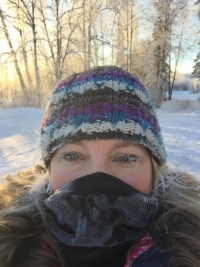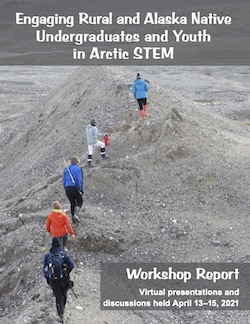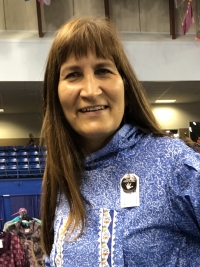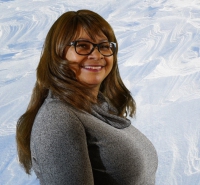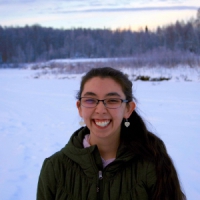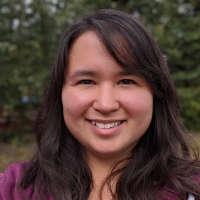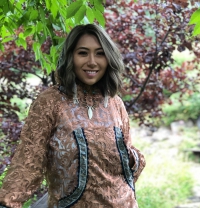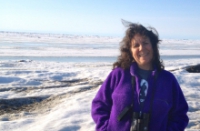Overview
The Arctic is changing at an unprecedented rate, with consequences for Arctic residents—particularly Indigenous Peoples. Along with these changes are new challenges and a growing need to engage and train the next generation in Science, Technology, Engineering, and Mathematics (STEM) fields that are specifically focused on the Arctic. To successfully address the challenges, institutions working in the Arctic need to represent and engage with the communities most affected by changes happening in the region. To start addressing these issues, the Interagency Arctic Research Policy Committee (IARPC) Arctic STEM Education Working Group decided a workshop was needed to focus on Arctic Undergraduate and Youth STEM programming.
This online workshop took place April 13-15, 2021, and a workshop report was produced.
The goal was to bring together Alaska Native undergraduates and youth, federal agency representatives, researchers on Arctic STEM projects, Indigenous faculty, and community members to discuss the gaps, challenges, opportunities, and successful practices to increase and support the representation of rural and Alaska Native undergraduates and youth in STEM education and career pathways. Prior to the workshop, open "Listen & Learn" sessions were held to provide opportunities for discussion on these issues.
Broader Impacts
The broader impacts of this workshop included generating solutions and forming partnerships to develop sound strategies for augmenting the participation of rural and Alaska Native undergraduates and youth in STEM. Participants in this workshop identified opportunities for improving STEM engagement efforts, and providing guidance on where additional efforts can be focused to increase Alaska Native experiences in Arctic STEM.
Project Activities
In 2020, we hosted several "Listen and Learn" sessions. The purpose of these sessions was to provide a shared space for discussing challenges in Arctic STEM and opportunities for improving engagement of rural and Alaska Native undergraduates and youth in Arctic STEM fields and activities. Discussions were used to help formulate the workshop focus. These sessions were open to the public.
Listen and Learn Sessions
Notes and themes emerging from these sessions are available in the products section and in the final report. Below is a list of the sessions held in 2020:
- Discussion at the Alaska Marine Science Symposium was held January 29, 2020, during the Alaska Marine Science Symposium Ocean Educator Night, Anchorage, Alaska
- Discussion on Engaging Rural and Alaska Native Youth in Arctic STEM was held February 11, 2020, at the Alaska Forum for the Environment Conference, Anchorage, Alaska
- Discussion held during the Youth Workshop with Alaska Youth for Environmental Action (AYEA) on February 14, 2020, at the Alaska Forum for the Environment Conference, Anchorage, Alaska
- Discussion (virtually) with the Alaska Native Science and Engineering Program (ANSEP) at the University of Alaska Fairbanks on April 7, 2020.
- Originally planned was a session at the One Health Conference on March 13, 2020, University of Alaska Fairbanks. This session was not held due to the cancellation of the conference.
Engaging Rural and Alaska Native Undergraduates and Youth in Arctic STEM Workshop
The workshop was held virtually April 13-15, 2021. As a result of this workshop, a report was produced and is now available to download.
Workshop Report (PDF)
Contact
For more information, please contact Janet Warburton at warburton [at] arcus.org.
Acknowledgements and Partners
This work is funded by the National Science Foundation under Cooperative Agreement No. PLR-1304316. Any opinions, findings, and conclusions, or recommendations expressed in this material are those of the author(s) and do not necessarily reflect the views of the National Science Foundation.
A special thanks to the Interagency Arctic Research Policy Committee (IARPC) Arctic STEM Education Working Group for supporting this work, and the International Arctic Research Center at University of Alaska Fairbanks for collaborating and partnering in the Listen & Learn Sessions, writing reports, and collaborating on the workshop planning. This work is being facilitated by Alli Harvey with Information Insights Inc., Fairbanks, Alaska.
Meeting Resources
Click to view meeting related resources below.
An interactive guide was developed for this workshop as well. This guide can be accessed here.
As products are developed for this project, they will be shared here.
Current products include:
- Final Workshop Report (PDF)
- Workshop Flyer (PDF)
- A summary of the Listen and Learn sessions
- Links to useful resources
If you have questions about this information, please contact Janet Warburton at warburton [at] arcus.org.
Workshop Report
The report for the online workshop on Engaging Rural and Alaska Native Youth in Arctic STEM is available to download.
Workshop Flyer
This flyer was created for sharing with others to broaden participation in the online workshop.
Summary on Emerging Themes from Listen and Learn Sessions
The following summary articulates the main themes that emerged from the facilitated Listen and Learn sessions held in 2020. These listening session themes were used to guide the framework of the discussions in the online 2021 workshop on Engaging Rural and Alaska Native Undergraduates and Youth in Arctic STEM. Input from the Listen and Learn sessions were grouped into overarching themes. The key themes that emerged were:
- Cost-Benefit of Participating in Programs
- Accessibility
- Relevance
- Community Engagement
- Long Term & Post-Program Engagement
- Funding
- Outreach and Recruitment
- Mentorship
- Partnerships
Below is the input that was gathered during the Listen and Learn sessions and draft guidance, summarized by the organizers, are listed below each theme. This information is just the start of the discussions and doesn't represent any final product.
As you go through this information, think back to your own experiences and let us know what is missing. Think about the drafted guidelines. Do the drafted guidelines capture the essence of the issues? If not, what additional guidance is needed? Are the guidelines and ideas clear? If not, how can they be better defined? Let us know! Feel free to email your suggestions and/or feedback to ARCUS Project Manager, Janet Warburton, warburton [at] arcus.org.
Input
Under each theme is the input and guidance from the sessions that feed into the theme.
Cost-benefit of Participating in Programs
Draft Guidance: Evaluate the cost vs benefit of participating in programs, not just for the participant but for their community (financial and otherwise). Make adjustments to the program and incentives accordingly.
Input from Listen & Learn Sessions:
- Provide competitive funding for students who come from lower-income families and are participating in a program instead of being paid to work
- Understand that when a student leaves their community to participate in a program, you are removing a pillar of the community - students often support their families and communities financially and otherwise in the summer
- Make academic credit available for students participating in programs
Accessibility
Draft Guidance: Ensure that programs are accessible to the demographic you are seeking to attract.
Input from Listen & Learn Sessions:
- Create local opportunities and bring STEM programs and opportunities to communities as to not add to “exodus” from communities
- Ensure that programs are open to non-traditional students
- Connect with programs that support younger students so that students are prepared when they enter into undergraduate programs
- Assess applicants on more than just GPA and written applications. Include things like letters of community support, community service history, and face-to-face conversations
- Make program timing flexible - most programs are outside of communities and last the duration of the summer. It is hard for students to leave for the whole summer because of subsistence needs and practices
- Have programs at different times like winter – it gives students something to do in winter when it is dark, summer is for subsistence and winter could be good for mental health
- Offer options for remote connection and participation
Relevance
Draft Guidance: Make programs and projects relevant to the place and community interests/needs.
Input from Listen & Learn Sessions:
- Use community-relevant concepts, challenges, and community-driven examples in programs and for projects
- Use applied and hands-on examples from communities
- Make sure that programs and training opportunities connect to pathways back to communities
- Incorporate Traditional Ecological Knowledge and values throughout the program
- Include vocational trades and skill development in STEM programs
- Include students and community members in the design of research projects
- Acknowledge there are other ways of knowing
- Understand what students longer-term goals are, and understand that it is not just about getting students into Ph.D. programs
- Identify areas of STEM lacking in communities and build programs around these needs
Community Engagement
Draft Guidance: Ensure respectful, honest, and consistent engagement with communities.
Input from Listen & Learn Sessions:
- Commit to long term engagement with communities
- Engage and integrate scientists and researchers who work in communities into programs & education systems
- Incorporate Traditional Knowledge and community knowledge into programs and projects
- Consider whole community and family when engaging a student
- Honor students existing role in STEM in their communities within programs
- Ensure appropriate inclusion and compensation for local experts and Traditional Knowledge Holders
- Engage communities in the curriculum development and research questions
- Consider how to engage students’ long term to keep them engaged in STEM
- Engage communities through citizen science and environmental monitoring and connect back to program/projects
- Ensure to the best extent possible that programs are run by Indigenous people, include Indigenous elders, and that students are surrounded by other Indigenous students
Long Term and Post Program Engagement
Draft Guidance: Engage students both before and after the program.
Input from Listen & Learn Sessions:
- Maintain relationships with students post-program
- Engage younger students in programs through various formats so that younger students are prepared and know what they need to do to fully participate in programs in the future
- Create student cohorts so students can support each other both during the program and after the programs are finished
- Continue to engage students after the program through activities like conferences and helping them connect to job opportunities and other active research opportunities
- Ensure that students have the opportunities to provide feedback on the programs they are participating in
- Helps students identify and obtain their next opportunity
Funding
Draft Guidance: Ensure adequate funding for programs and students.
Input from Listen & Learn Sessions:
- Fund scientists to do more face to face engagement in communities
- Connect with organizations and agencies to sponsor students in programs
- Consider how STEM programs are funded. If they are funded from out of state how do they know what local priorities are? If funded by the state how can they be protected from political fluctuations?
Outreach & Recruitment
Draft Guidance: Conduct targeted and community based (in-person) outreach and recruitment.
Input from Listen & Learn Sessions:
- Conduct contextualized and face-to-face outreach and recruitment in communities
- Connect with people from rural Alaska who have STEM jobs as examples to students
- Begin outreach starting at an early age so students know what opportunities are ahead of them
- Include rural campuses, vocational schools, and regional training centers in outreach and engagement activities
- Engage students who have participated in programs to go back to the community and work with tribes and schools to do outreach
- Advertise to the whole community, utilizing public spaces like libraries, recreation centers, at community events, and schools
- Work with teachers and guidance counselors to connect with students
- Help guide students through the application process and ensure that students have enough time to work on applications. Students often need to use school internet to apply so make sure that applications are not just open over holidays and breaks.
Mentoring
Draft Guidance: Prioritize mentorship before, throughout, and post-program.
Input from Listen & Learn Sessions:
- Set up near-peer mentoring, where older students mentor younger students
- Create a peer to peer cohorts so students can mentor and support each other
- Engage community Elders to be mentors
- Consider options for pre-program mentorship to help students be prepared for the program
- Provide options for mental health support
- Ensure that social support exists for students to reduce culture shock, especially for students from rural communities separated from family support structures
- Mentors should teach soft skills like public speaking and networking
Partnerships
Draft Guidance: Connect and partner with community organizers and employers.
Input from Listen & Learn Sessions:
- Partner with communities and Tribal governments
- Create opportunities for student exchanges between campuses and communities
- Connect rural communities to each other to share STEM work and experience and best practices/successes/challenges. This creates a community of Arctic STEM across the Arctic.
- Offer free training for jobs as a part of this (connected with potential employers)
- Establish employer partnerships so students can be deliberate as to what they are working towards
Resources
A number of resources have been collected for learning more about engaging youth in STEM. This is a growing body of knowledge; if you have contributions, please contact the ARCUS staff.
Steering Committee Members
Project Coordinator, Center for Arctic Policy Studies
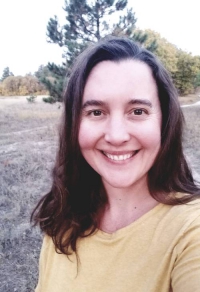
Maureen Biermann
University of Alaska FairbanksPrincipal Investigator, Research Enrichment Core, NIH-BLaST (Retired)
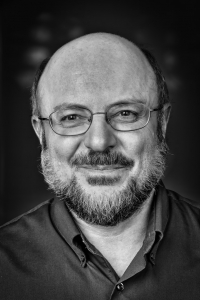
Michael Castellini
University of Alaska FairbanksTribal Liaison (completed committee term)
Associate Professor, Ilisaġvik College
Student Representative
PhD Student (completed committee term)
Student Representative
National Partnership and Science Director, Alaska Native Science & Engineering Program
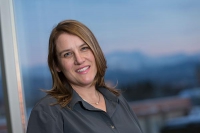
Beth Spangler
Alaska Native Science and Engineering ProgramPolicy Analyst (completed committee term)
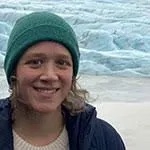
Sorina Stalla
U.S. Interagency Arctic Research Policy CommitteeBLaST Reporting & Outreach Coordinator
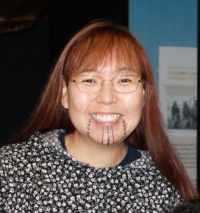
Amy Topkok
University of Alaska FairbanksAdditional Organizers
IARPC Advisor
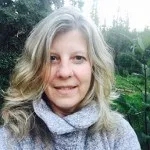
Kaja Brix
U.S. National Oceanic and Atmospheric AdministrationFacilitator
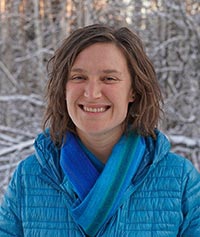
Alli Harvey
Information InsightsIARPC Advisor
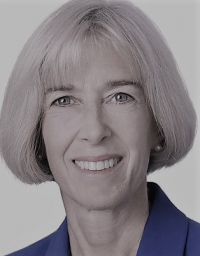
Elizabeth Rom
U.S. National Science FoundationPrincipal Investigators
International Arctic Research Center, Partner
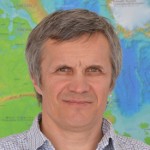
Vladimir Alexeev
University of Alaska FairbanksProject Lead, ARCUS
Executive Director, ARCUS
